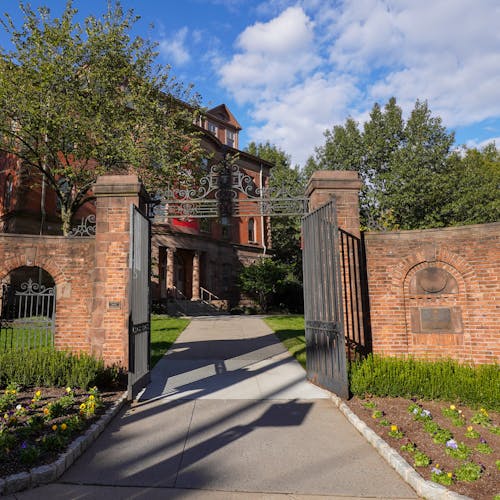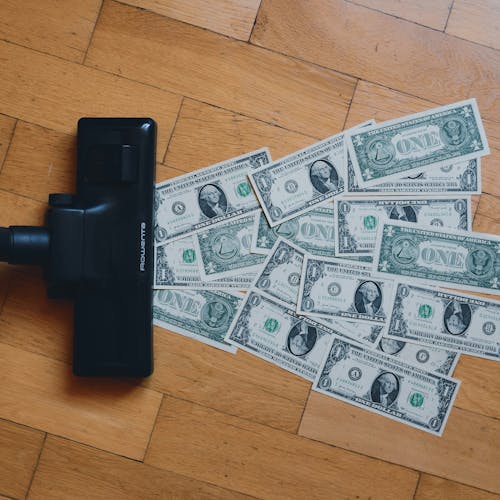SAJU: Burnout major concern among college students, Americans

“Burnout” used to be a word that applied exclusively to health care workers, police officers, firefighters, paramedics or social workers.
Now, the term is no longer used to describe people who encounter trauma daily. Burnout is used to characterize people in a more high-stress, continuously connected and over-demanding workplace.
This colloquial shift in vocabulary shows a significant change in the workplace and especially in a campus environment. Young adults today face financial stress like no other generation — pressure that inevitably correlates to burnout.
Mental health professionals said that students experience economic burdens on a different scale than many of their predecessors. Growing up in the Great Recession, watching friends and family members lose their homes and worrying about limited career prospects after dealing with student loans have significantly impacted America’s students.
The stakes for success are higher, and the high-stress environment of college does not ease the financial burden. Along with finances, college students today deal with an ingrained desire for immediate professional achievement and a tendency for personal comparison.
Since childhood, numerous students have been pushed and prodded about college admissions. Understanding one’s capabilities and interests have come second to adding activities and classes to one’s resume. This unfortunate reality of the education system is one main reason why young adults are already mentally burned out, before they even step foot on a college campus.
While college learning environments are generally more flexible and conducive to self-exploration, they also cause additional stress and anxiety with the amount of energy demanded from students. There are dozens of opportunities to get involved, and too many people are not sleeping enough, trying to take advantage of all of them.
Burnout is much more severe than it seems, and college burnout reveals broader overall trends of how the American education system is stifling the future of this country’s youth. Occupational burnout is more than just needing a vacation. Long-term burnout is a significant health concern that should be taken seriously in the school system.
Operating in a state of high stress for an extended period is profoundly detrimental to an individual’s overall happiness. This way of working is not the only way to be productive. Biologically, humans were not built for this.
An education system that should be inspiring students is indirectly harming their physical and psychological health.
Of the college students who seek counseling, the American Psychological Association (APA) reported that 45% of these students cited stress as their main reason for taking steps to reach out for help. So, what is the difference between stress and burnout?
To summarize a more involved discussion about these two topics, burnout generally correlates to a decline in performance, and it is possible to experience stress without burning out.
Controlled stress has the potential to be beneficial: Stress can push an individual to the level of optimal alertness, and this can beneficially impact their cognitive performance. But, when stress significantly detracts the quality of one’s social interactions, academic aspirations or overall health, the potential for burnout is high.
“Burnout and the behaviors and weight that accompany it aren’t, in fact, something we can cure by going on vacation. It’s not limited to workers in acutely high-stress environments. And it’s not a temporary affliction: It’s the millennial condition. It’s our base temperature. It’s our background music. It’s the way things are. It’s our lives,” according to Anne Helen Petersen’s “How Millennials Became The Burnout Generation,” an excellent insight into the need to re-frame burnout in the context of a national discussion.
Burnout is becoming a fact of life, and it should not be. The expectation to work hard all the time and study in every spare moment must be counteracted with a desire to take care of oneself.
Self-care is sold on television as a bath bomb that will guarantee a fun spa day or an exotic getaway that will be a fun vacation from everyday life.
Instead, combating burnout should be about experiencing true self-care and building lives that do not necessitate a vacation. Self-care is “self-preservation … (and) an act of political warfare,” said Audre Lorde.
It is the only way to ensure that in the race for success, America’s future does not go up in flames.
Neha Saju is a School of Arts and Sciences second-year student planning on majoring in political science and history and minoring in English. Her column, "Pride, Not Prejudice," runs on alternate Fridays.
*Columns, cartoons and letters do not necessarily reflect the views of the Targum Publishing Company or its staff.
YOUR VOICE | The Daily Targum welcomes submissions from all readers. Due to space limitations in our print newspaper, letters to the editor must not exceed 500 words. Guest columns and commentaries must be between 700 and 850 words. All authors must include their name, phone number, class year and college affiliation or department to be considered for publication. Please submit via email to [email protected] by 4 p.m. to be considered for the following day’s publication. Columns, cartoons and letters do not necessarily reflect the views of the Targum Publishing Company or its staff.



